|
By Maxine Browne, See the Triumph Contributor The bliss of new love makes time stand still. When you meet your next Romeo (or Juliet), it’s only natural to want to spend every waking moment with them. The euphoria makes you lightheaded. But try to keep your feet on the ground and your head out of those fluffy clouds. A healthy, balanced life includes educational and career goals, hobbies and other interests. Between your social life, activities and responsibilities, you are probably a busy person. People who actively participate in life usually have a full calendar. This is normal. One of the keys to balance when you fall in love is to keep your life in the same rhythm as before you met You-Know-Who. After all, true love celebrates you for who you are. How can this happen if you give up your activities and stop spending time with the people you love? Your new partner needs to see you engaged in the areas that matter to you. Your partner should have activities and interests of their own. They should have friends and family as well. Your varied interests give you things to talk about when you’re together. If Romeo or Juliet complains about your social life, they’re not the right person for you. Why would someone who cares about you expect you to stop participating in things of importance to you? Those two thoughts don’t go together well. If you see that your new partner doesn’t have any friends, this is a different kind of problem. It could even be a sign that this is not a healthy person. Everyone has old friends. If not, could this be someone who struggles to maintain healthy relationships over time? If so, Red Flag! If they grumble that you seem to be enjoying other activities instead of spending all of your time with them, this is a sign of jealousy. Don’t ignore it. What may feel flattering at the beginning could become suffocating over time and a sign of controlling behavior. If you’re going to school, don’t let your attendance or grades slip. Your new partner should be proud of your accomplishments and will respect you when you say you must study for a big exam. They should honor your boundaries and want you to excel. They should admire your commitment to your education and career. If your new partner seems to keep you out late when you say you need to study, don’t ignore that information. An unhealthy partner may try to sabotage your success by asking you to skip classes, making you late, destroying your school papers or losing your materials. Anyone who loves you would never try to damage your end result because what’s important to you is important to them. Pay attention to that behavior. Maintain your relationships with your family and friends. They were in your life before you met Romeo or Juliet and will be there after if it doesn’t last. Your friends and family love you, and you love them. They’ll also be the first ones to pick up on character flaws or shadiness in your partner. So, stay connected. They will ground you and keep you from floating off to Never Never Land.  Bio for Maxine Brown: Maxine Browne is a keynote speaker and workshop facilitator on the topics of domestic violence and rebuilding your life after divorce. Her inspirational stories illustrate how to co-parent with a difficult ex and how to create healthier relationships. Maxine is one of the 27 amazing co-authors of the International Best Seller, The Missing Piece compiled by Kate Gardner, as well as one of the co-authors for The Missing Piece in Business. She is also the author of Years of Tears, the story of her 10 year marriage to a controlling tyrant that changed her life forever. Contact Maxine to speak at your next event at [email protected]. Visit her website at www.maxinebrowne.com. 12/30/2014 Self-Care: Figuring Out What Works For YouBy Christine Murray, See the Triumph Co-Founder
All this month, we’ve focused on the importance of practicing self-care, whether you’re a survivor of an abusive relationship, if you work professionally with clients impacted by abuse and trauma, or if you’re someone who’s been touched by abuse in other ways, such as having a friend or family member who has been abused. As we wrap up this series, we want to emphasize that self-care can look very different for different people, so what’s most important is finding out what strategies work best for you. To help inspire you to think of all the diverse ways that you might put self-care practices at work in your own life, below you’ll find a list of the various strategies that survivors of past abusive relationships who participated in our research have used to care for themselves:
You’re worth it! You have an important contribution to make to the world, and you’ll be in the best position to make that contribution if you are consistently recharging, getting re-energized, and restoring your commitment to yourself and others by engaging in self-care! By See The Triumph Guest Blogger Vanessa Stevens
“We teach people how to treat us.” Dr. Phil McGraw Boundaries are tools for building cooperation in healthy relationships. There are physical, mental, psychological and spiritual boundaries, often created out of our personal and societal beliefs. In my last post, I spoke about the four types of boundaries with the most ideal being the Flexible type. Flexible boundaries enable and require us to be assertive in our communication and to be fully open and aware with what is going on. We might ask for clarification before jumping to conclusions, and take our time responding. We are not falling prey to psychological manipulation or “mind games.” Survivors of abuse are often slow to trust again and may put up walls to avoid getting hurt, but these walls also keep us from the joys of intimacy. Without healthy boundaries, we become emotionally bankrupt. When setting boundaries, it’s important to: · Be assertive, calm, firm, courteous and clear Use “when (you do this) I feel (how it affects you)….” Example: “When you talk to me in that tone of voice, I feel talked down to.” OR “When you tell me what I do and don’t like on my pizza, I feel like I feel like you're trying to control me, or that you think I can’t make my own decisions.” · Set consequences (only if necessary) and be prepared to carry these out. Example: “If you keep talking down to me, I will stop seeing you.” · Express yourself, know what you want out of an interaction. And finally, · Let go of the outcome. By stating what you want, you put the ball in the other’s court for them to choose how to respond. The difference between you and someone who is manipulative or a control freak is that you’ve let go of the outcome, and you trust your request will be acknowledged. If it’s not, then this may not be a healthy person or relationship for you. Top tips to keep in mind when setting and practicing boundaries: Know yourself. Practice self awareness. Especially after leaving an abusive situation, it’s a good idea to spend some time learning what you like, where your passions lie, exploring hobbies, self-care, etc. Get to know your true self. Know your feelings. If there is discomfort or resentment in an interaction, chances are your boundaries are being invaded. How does your gut feel after engaging with someone? If you feel resentment, it may be you are being taken advantage of. If you feel discomfort, you may be feeling guilt. Some discomfort is normal. Setting boundaries will feel uncomfortable the first few, or 200 times. And, you may get it wrong. After years of abusive relationships, I saw “red flags” when I still hadn’t called back Friday night’s date because I was busy, and he called me three times since the date. I was not going to tolerate this harassing behavior and called him to basically tell him how I felt. I stated my consequence: “If you continue to call me and not wait for a reply, I’m not going to date you anymore.” I never heard from him again. I may have overreacted, and maybe I lost out on a great guy, but my self-respect (and respect of my boundaries) was more important to me than our relationship. Give yourself permission to be wrong. It’s the only way you’ll eventually get it right! Practice setting boundaries even if they seem a little harsh or extreme, or rigid. You can always adjust the boundaries as you go. Set the intention for protection Author and “spirit junkie” Gabrielle Bernstein says, “First and foremost, set the intention in your mind to be loving, kind and forgiving, but not like a sponge.” Imagine a white light or bubble surrounding you that keeps you protected from negative energies, like being taken advantage of, or manipulated. I’ve been a public performer for years. Whether on stage, or in doing the work I do to help survivors, I might visualize a protective bubble around me. Like Gabrielle says, I’m still kind and loving, but my energy stores are protected. Maintaining boundaries allows us to stay whole, and defining our boundaries helps others to define and keep theirs. The "Purple Song Project: It is possible to thrive" offers survivors of domestic violence hope, healing and awareness… through songs! Vanessa Stevens is on a mission to identify what helps survivors really, truly move on after trauma and explores the ways music and art can help others heal. She also is a freelance article writer (online and off) and continues to produce theme songs for businesses, non-profits and films. Purple song.com, twitter (@Van Stevens) or facebook (purplesongproject) By See The Triumph Guest Blogger Vanessa Stevens
“We teach people how to treat us.” Dr. Phil McGraw Boundaries are tools for building cooperation in healthy relationships. There are physical, mental, psychological and spiritual boundaries, often created out of our personal and societal beliefs. In my last post, I spoke about the four types of boundaries with the most ideal being the Flexible type. Flexible boundaries enable and require us to be assertive in our communication and to be fully open and aware with what is going on. We might ask for clarification before jumping to conclusions, and take our time responding. We are not falling prey to psychological manipulation or “mind games.” Survivors of abuse are often slow to trust again and may put up walls to avoid getting hurt, but these walls also can keep us from the joys of intimacy. Without healthy boundaries, we become emotionally bankrupt. When setting boundaries, it’s important to: · Be assertive, calm, firm, courteous and clear Use “When (you do this) I feel (how it affects you)….” Example: “When you talk to me in that tone of voice, I feel talked down to.” OR “When you tell me what I do and don’t like on my pizza, I feel like I feel like you are trying to control me, or that you think I can’t make my own decisions.” · Set consequences (only if necessary) and be prepared to carry these out. Example:“If you keep talking down to me, I will stop seeing you.” · Express yourself and know what you want out of an interaction, and finally, · Let go of the outcome. By stating what you want, you put the ball in the other’s court for them to choose how to respond. The difference between you and someone who is manipulative or a control freak is that you’ve let go of the outcome, and you trust your request will be acknowledged. If it’s not, then this may not be a healthy person or relationship for you. Top tips to keep in mind when setting and practicing boundaries: Know yourself. Practice self-awareness. Especially after leaving an abusive situation, it’s a good idea to spend some time learning what you like, where your passions lie, exploring hobbies, and practicing self-care. Get to know your true self. Know your feelings. If there is discomfort or resentment in an interaction, chances are your boundaries are being invaded. How does your gut feel after engaging with someone? If you feel resentment, it may be you are being taken advantage of. If you feel discomfort, you may be feeling guilt. Some discomfort is normal. Setting boundaries will feel uncomfortable the first few, or 200 times. And, you may get it wrong. After years of abusive relationships, I saw “red flags” when I still hadn’t called back Friday night’s date because I was busy, and he called me three times since. I was not going to tolerate this harassing behavior and called him to basically tell him how I felt. I stated my consequence “If you continue to call me and not wait for a reply, I’m not going to date you anymore,” and I never heard from him again. I may have overreacted, and maybe I lost out on a great guy, but my self-respect (and respect of my boundaries) was more important to me than our relationship. Give yourself permission to be wrong. It’s the only way you’ll eventually get it right! Practice setting boundaries even if they seem a little harsh or extreme, or rigid. You can always adjust the boundaries as you go. Set the intention for protection Author and “spirit junkie” Gabrielle Bernstein says “First and foremost, set the intention in your mind to be loving, kind and forgiving, but not like a sponge.” Imagine a white light or bubble surrounding you that keeps you protected from negative energies, like being taken advantage of or manipulated. I’ve been a public performer for years. Whether on stage, or in doing the work I do to help survivors, I might visualize a protective bubble around me. Like Gabrielle says, I’m still kind and loving, but my energy stores are protected. Maintaining boundaries allows us to stay whole, and defining our boundaries helps others to define and keep theirs. The Purple Song Project: It is possible to thrive offers survivors of domestic violence hope, healing and awareness… through songs! Its founder, Vanessa Stevens, is on a mission to identify what helps survivors really, truly move on after trauma, and she explores the ways music and art can help others heal. She also is a freelance article writer (online and off) and continues to produce theme songs for businesses, non-profits, and films. Connect with Vanessa at purplesong.com, twitter (@Van Stevens), or Facebook (purplesongproject) 12/23/2014 Self-Care In A Busy WorldBy Heather Teater, See the Triumph Guest Blogger
In high school it was marching band and AP homework. In college it was studying for exams, reading a book a week for my English minor, and striving for the coveted 4.0. In grad school, it was homework, internship, doing research for clients, and a mess of other life issues. There was always a reason that I just needed to wait until the next stage of my life before I could finally have time to take care of myself. Yet, even now I find myself making excuses as to why I don't have time for myself. I work a full-time job, I need to make time for my husband, there are chores to be done, hobbies are too expensive... the list could go on. I'm sure I'm not the only one who feels too busy or too tired to take better care of myself. So, what are we to do when the world seems to be asking too much of what little time we have? Is self-care just a lofty goal that only a privileged few can achieve? Should we stop kidding ourselves and give up? No. It may take a while, but even in this busy world in which we live, we all can find a little time to take care of ourselves. I have a few suggestions to start heading in that direction. 1. Make a list of positive things that replenish you. Do you enjoy exercise, reading books, meditation, painting, deep breathing, solving crosswords, grabbing lunch with friends? Whatever you enjoy, write it all down so that you have a list on hand when you find a moment in your day. If you don't know what is refreshing to you anymore, try something out! Ask your friends what healthy things they do to relax, search for suggestions on the internet, or just start doing something that catches your eye. The more activities you find that leave you feeling relaxed and refreshed, the more options you have to choose from when you find the time for self-care. 2. Look for small moments in your day. You might be surprised at how many five- to ten-minute periods of free time you have scattered throughout your day. Do you always take your full lunch break to eat your food, or do you finish with some time to spare? Do you arrive a few minutes early to work? Do you sometimes find yourself scrolling mindlessly through social media? These times can be used for a few minutes of self-care. You can't read a whole chapter of a book or go for a run, but you can read a news article about one of your interests, work on a sudoku, or do some jumping jacks. I like to use these quick bouts of time to do some deep breathing. I use a free app on my phone called Breathe2Relax, but you can guide your own deep breathing if you prefer. 3. Intentionally build some time into your schedule for self-care. Most of the activities on your list probably can't be done in five minutes, and it is unlikely that you find a spare consecutive half-hour or more just appears in your day on a regular basis. If you do, good for you! Protect it. If you are like me, however, you have to purposely set aside some time for yourself. Get up a little earlier, go to bed a little later, watch one less episode of your favorite show in the evening, say "no" to some requests people make of you (really, you don't have to do everything for everyone). I know from experience that this can be a difficult process and some days just don't have room for any more activities, but if you keep pushing to make time for yourself, it can become a habit! 4. Try to start eating healthier foods. Eating right makes your body feel good, and it doesn't necessarily take extra time. I often tell myself that eating healthy foods is too expensive, and it can be. However, it is possible to buy healthy foods on a budget. Look for fresh fruits, vegetables, and meats that are on sale. You can even buy more than you and your family will typically eat and then freeze some for another day. Also, look in your area to see if you have any discount food stores; many communities have grocery stores that sell food items that are about to expire at much cheaper prices. Learning to take time for you can be a long and sometimes difficult process. The real first step in finding time for self-care is to decide that your health and well-being are worth the extra effort and decide to stop making excuses and start making changes. And we're all worth it, so let's get started! Heather Teater recently completed her Master's degree in Couple and Family Counseling in the Department of Counseling and Educational Development at the University of North Carolina at Greensboro. |
Archives
July 2024
CategoriesAll About Intimate Partner Violence About Intimate Partner Violence Advocacy Ambassadors Children Churches College Campuses Cultural Issues Domestic Violence Awareness Month Financial Recovery How To Help A Friend Human Rights Human-rights Immigrants International Media Overcoming Past Abuse Overcoming-past-abuse Parenting Prevention Resources For Survivors Safe Relationships Following Abuse Schools Selfcare Self-care Sexual Assault Sexuality Social Justice Social-justice Stigma Supporting Survivors Survivor Quotes Survivor-quotes Survivor Stories Teen Dating Violence Trafficking Transformative-approaches |
Search by typing & pressing enter


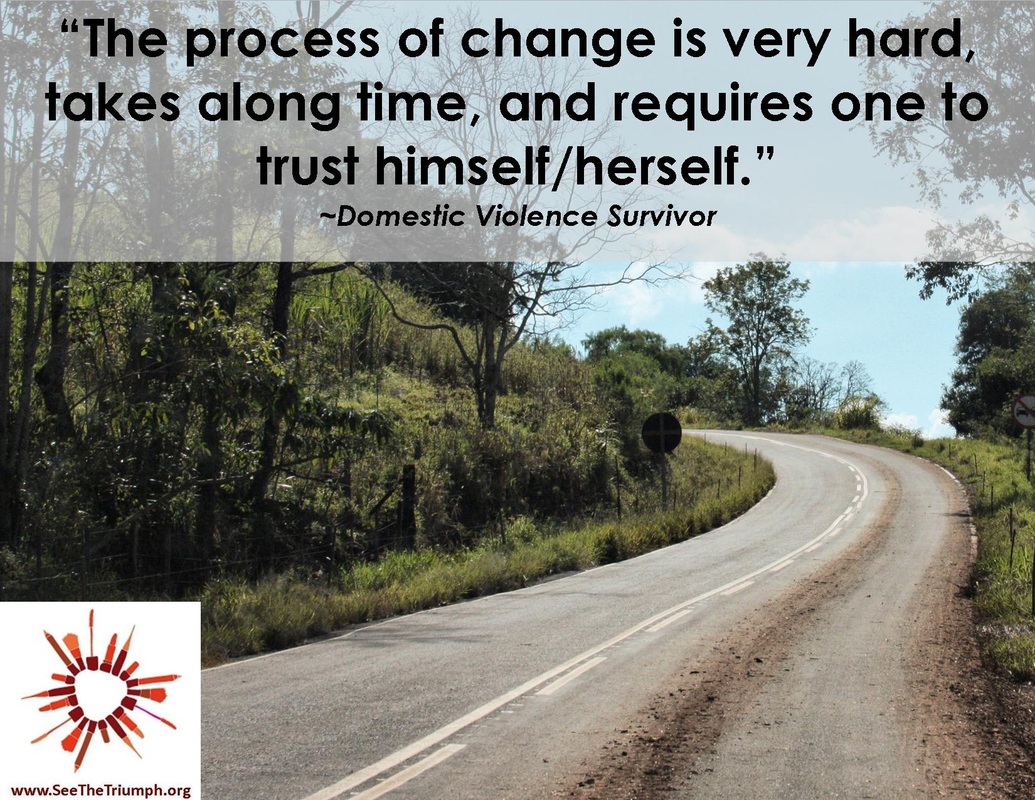
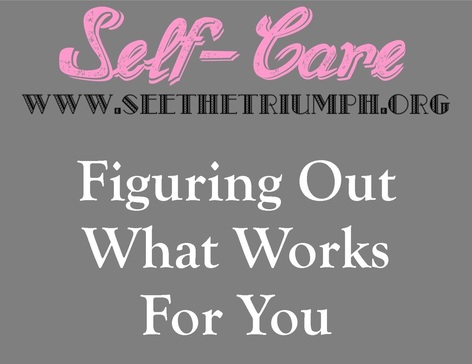
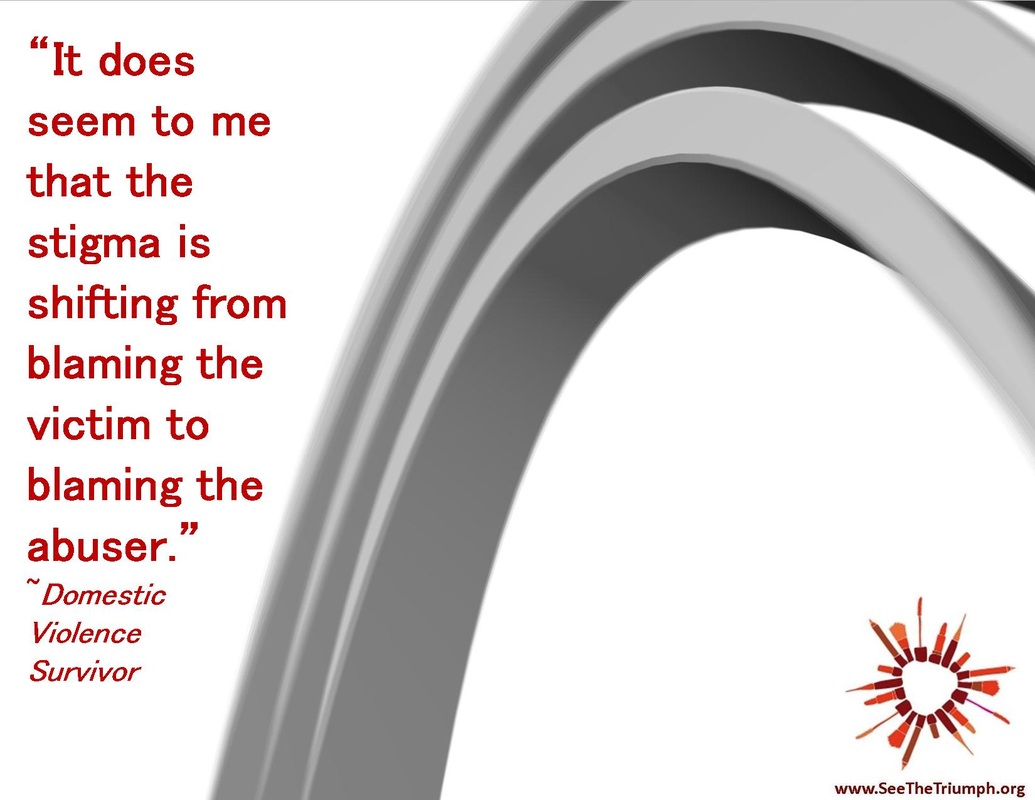
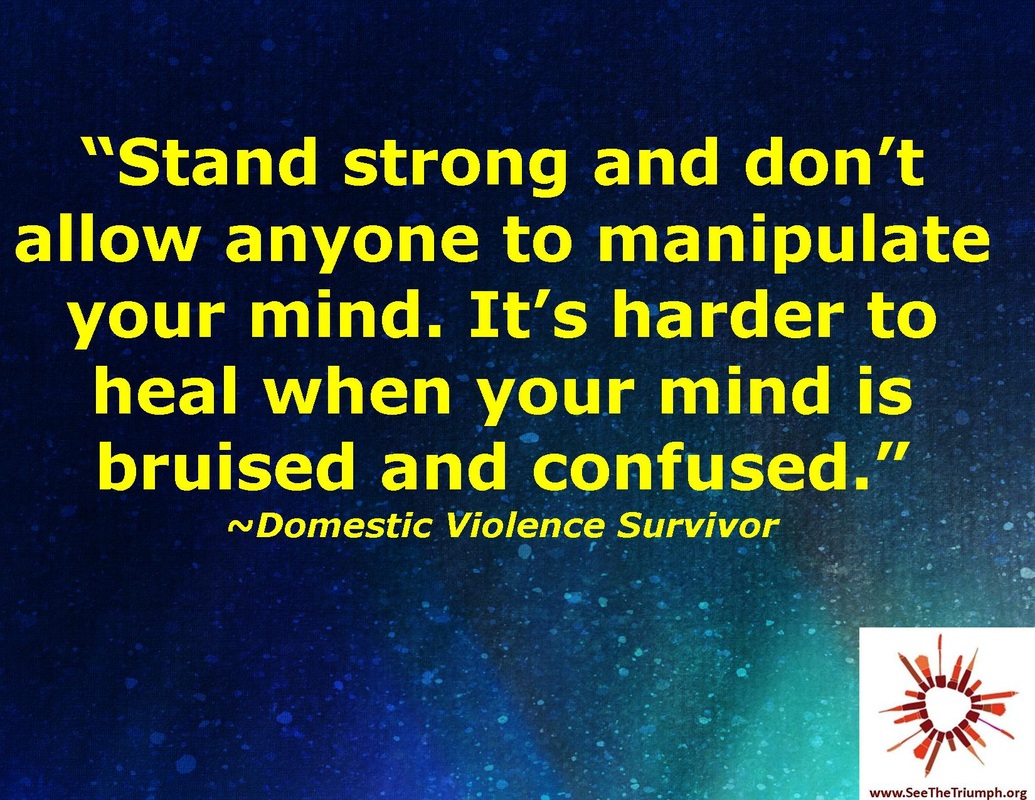
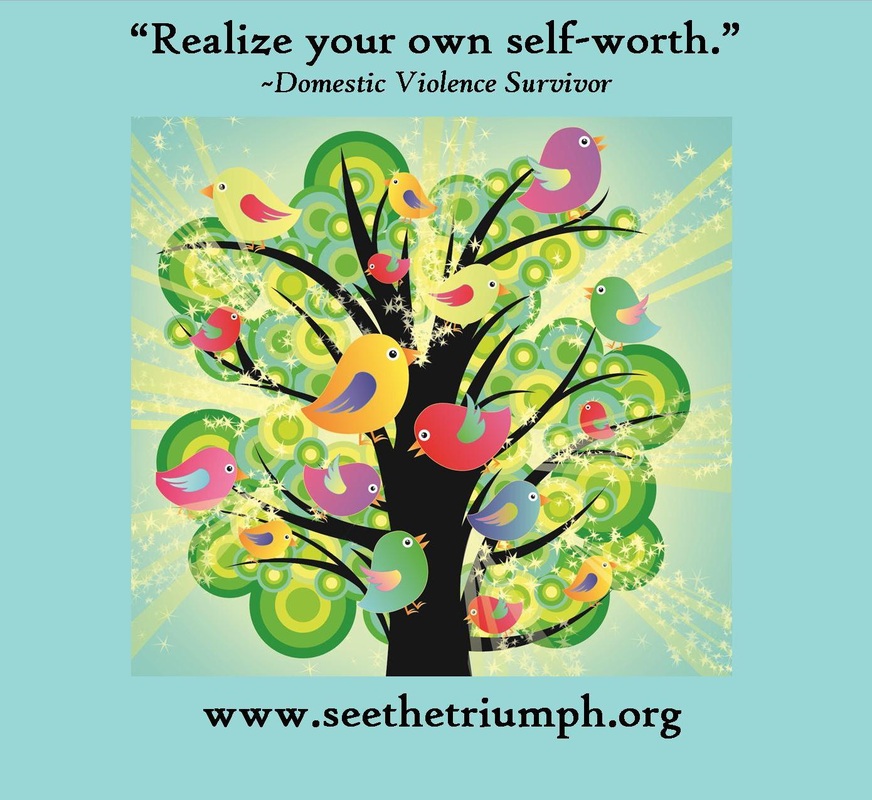
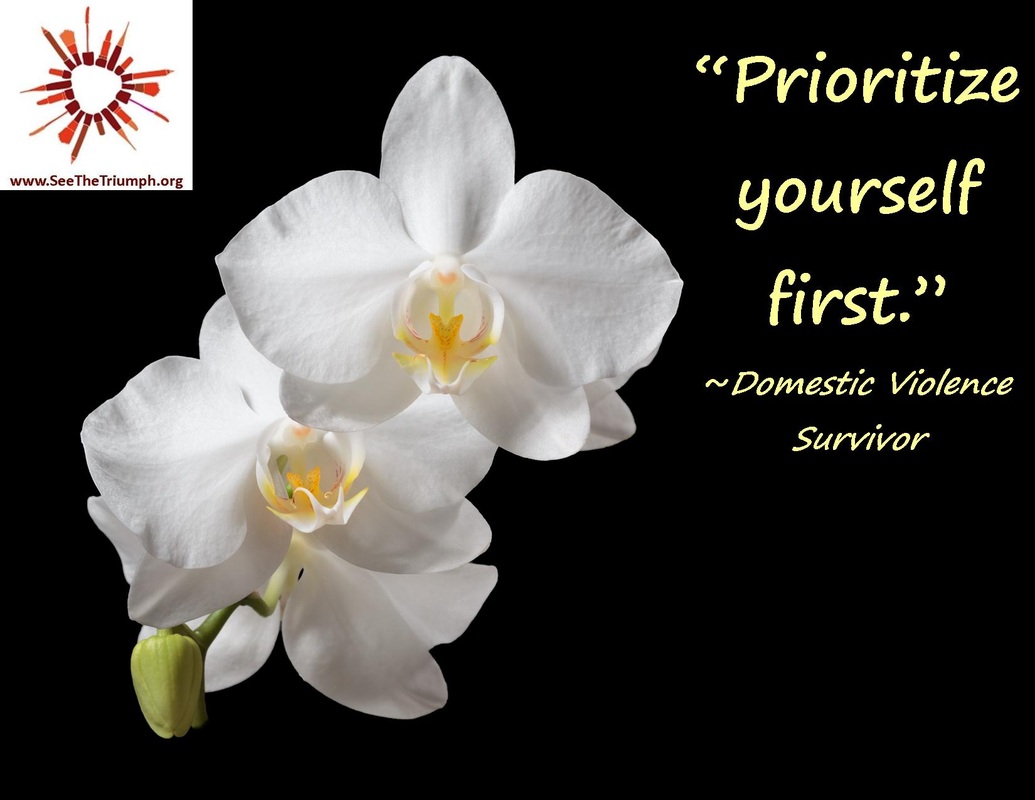
 RSS Feed
RSS Feed